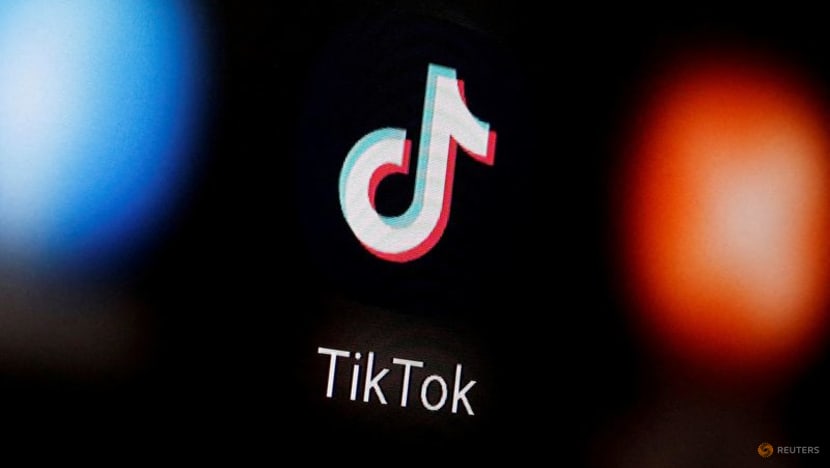TikTok says it does not ‘take sides’, addresses criticism over Israel and pro-Palestinian content
"Blunt comparisons of hashtags are severely flawed and misrepresentative of the activity on TikTok," said the social media platform after some US lawmakers renewed their push for the app to be banned nationwide.

A TikTok logo is displayed on a smartphone in this illustration taken on Jan 6, 2020. (File Photo: Reuters/Dado Ruvic)

This audio is generated by an AI tool.
SINGAPORE: TikTok said it does not "promote" one side of an issue over another, after some US lawmakers seeking a nationwide ban of the app argued that the platform favours pro-Palestinian content.
"Our recommendation algorithm doesn't 'take sides' and has rigorous measures in place to prevent manipulation," TikTok said in a blog post on Monday (Nov 13).
"Blunt comparisons of hashtags are severely flawed and misrepresentative of the activity on TikTok."
When congressional Republicans renewed their push earlier this month for the app to be banned in the United States, they noted that the number of TikTok posts with the #freepalestine hashtag was far higher than those with #standwithisrael.
In a letter addressed to US Treasury Secretary Janet Yellen, Senator Josh Hawley pointed to a poll that suggests a significant number of young Americans between the ages of 18 and 24 find Hamas' actions justified (51 per cent).
Hawley said this could be attributed to anti-Israel content on TikTok, where most young internet users get their information from. He also said the findings from the poll align with “the Chinese government’s foreign policy preferences”.
TikTok, which has 150 million users in the US, is owned by Chinese tech giant ByteDance.
Republican Mike Gallagher, in an essay for a blog called The Free Press, said TikTok was “brainwashing our youth against the country and our allies”, adding that the app carries "rampant pro-Hamas propaganda”.
Addressing the criticism, TikTok said there has been "misinformation and mischaracterisation" about how the platform operates, adding that hashtags are added by content creators and not the social media platform.
"Millions of people in regions such as the Middle East and South East Asia account for a significant proportion of views on hashtags. Therefore, there’s more content with #freepalestine and #standwithpalestine and more overall views," TikTok said in its blog post.
"It is easy to cherry-pick hashtags to support a false narrative about the platform."
According to TikTok, while #standwithisrael may be associated with fewer videos than #freepalestine, it has 68 per cent more views per video in the US, which means more people are seeing the content.
Both TikTok and Meta, which owns Facebook and Instagram, ban content promoting Hamas.
TikTok said that between Oct 7 and 31, it removed more than 925,000 videos in the conflict region for violating its policies around violence, hate speech, misinformation and terrorism, including content promoting Hamas.
It also noted that the difference in volume between content related to Palestine and those related to Israel is similar across platforms such as Facebook and Instagram.
On Facebook, 11 million posts have been tagged with the #freepalestine hashtag, which is 39 times more than those with #standwithisrael. The pro-Palestinian hashtag is also found on 6 million posts on Instagram – many times more than the pro-Israel hashtag, according to its data.
TikTok also said there has been an upward trend of Palestinian support among Americans born after 1980, citing Pew Research surveys.
"The data shows that this support is not new and was rising before TikTok was created, so it would be unrealistic to ascribe such broad sentiments to a single communications channel such as TikTok," said the platform.

















